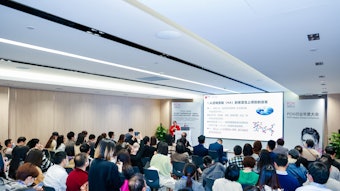During a panel discussion at this year’s symposium of the American Society of Perfumers (ASP), the question of core lists was raised. To get on—and stay on—the major players’ core lists is a challenge in and of itself. Look at any public fragrance company’s annual report and you’ll likely note a mention of the briefing activity generated by the core lists on which they appear. The motivation for the lists is the clients’ bottom line, and to some degree efficiency, but what is the effect on creativity?
Moderator James Krivda wondered if core lists affect clients’ ability to be exposed to a sufficient number of creative fragrances. Panelist Trudi Loren (Estée Lauder) explained that her company has only used the core list system for about a year and had only recently held reviews with its three suppliers. “Yes,” she said, “we are not exposed to every single perfumer that we would like. However, we think that it has been—and I hate to say this in front of this crowd—a very positive experience for us. It allows us to be closer, much more transparent and allows us to spend much more time with those perfumers that are with the core list houses. It gives us the ability to spend quality time with those houses.”
However, she noted, the opposite is also true. “For those three houses that are on the core list, the spotlight is on them,” said Loren. “So the pressure on them to perform is now even greater because now they’re one of three instead of being one of five. Your statistical odds not only go up … but the pain of losing is that much greater.”
P&G’s Scott Frame’s advice for getting on his company’s core list was simple: “Bring something forward that’s unique, that we can’t get somewhere else.” Whether it is unique creativity, materials or technology, differentiation is the key.
Loren concurred. “It has to be something you cannot get anywhere else,” she said, citing new captives. “It has to be something that is going to be an evolution in the industry, not just an improvement over something we already have.”
MVP Group’s Maura Utley noted that the same was true in the candle industry. “We’re always open to new fragrance delivery systems and innovations,” she said. “That’s something that we’d love more of.”
Frame concluded by saying that smaller companies and those organizations that were not on core lists must focus instead on delivering those unique materials and technologies—focusing tightly on what they do best instead of trying to be all things to all people.










